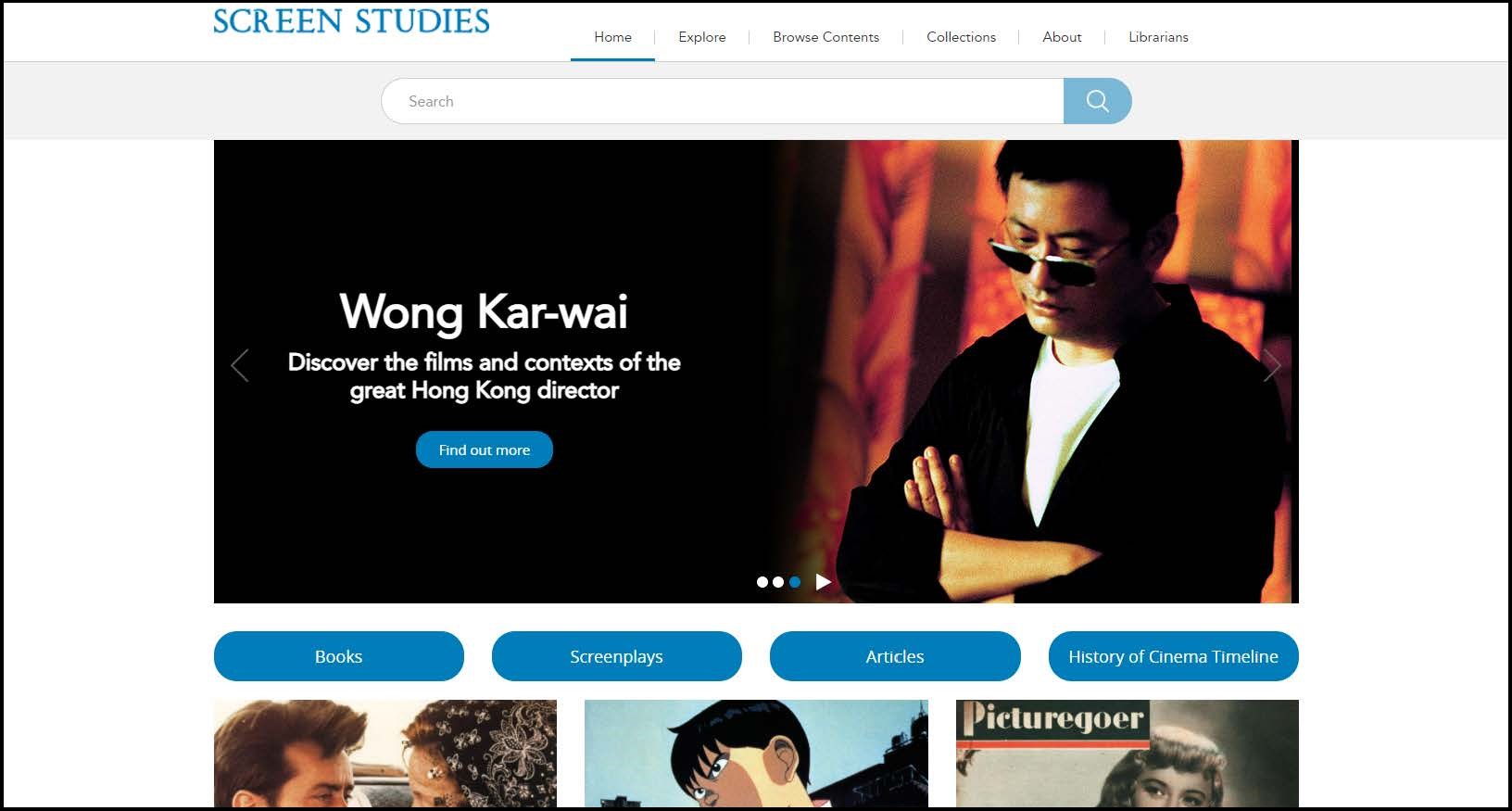2018 School Spending Survey Report
Bloomsbury Screen Studies | Reference eReviews
Screen Studies offers a range of works, from award-winning screenplays, to critical and practical works on film and filmmaking. A valuable resource for institutions that support cinema and film studies, screenwriting, and filmmaking.
 Bloomsbury Screen Studies
Bloomsbury Screen Studies
CONTENT
With titles from Bloomsbury, Faber & Faber, and the British Film Institute (BFI), Screen Studies promises to take users “from script to screen and beyond,” offering a range of works from award-winning screenplays to critical and practical works on film, filmmaking, and more, with input from an editorial advisory board of scholars.
Divided into four collections, each available with a separate yearly subscription or under a perpetual-access model (with updates available for yearly purchase), the database boasts superb cinema-related content. The Bloomsbury and Faber Screenplays and Criticism Collection provides access to a searchable database of screenplays in industry-standard format, analytical and thematic articles, books on filmmaking and screenwriting, and an interactive time line.
Screen Studies also provides access to BFI Film Classics, BFI Film Studies, and the Filmmaking collection. BFI Film Classics includes titles from the book series of the same name, which celebrates landmark works from the silent era of film to the present, from Metropolis to La Jetée to Pan’s Labyrinth. Written by scholars and critics and intended for film enthusiasts, researchers, students, and those working in cinema, these selections place each film within the larger context of cinema history while explaining why they are considered classics.
BFI Film Studies brings together titles from BFI Publishing’s library of books on film history, theory, national cinema, genres, filmmakers, and stars, and includes the “BFI Screen Guides,” “World Directors,” “Film Stars,” “BFI Silver,” and the “International Screen Industries” series, as well as Pam Cook’s The Cinema Book.
Finally, the Filmmaking collection contains overviews, handbooks, and technical guides in ebook format, from Focal Press and Bloomsbury, on production, screenwriting, cinematography, direction, and business aspects of the film industry for student-practitioners.
USABILITY
With a brief “about” and “featured content” sections, the Screen Studies homepage presents an inviting starting point, laying out the collections’ major research areas and providing easy and creative ways to access to material. Beyond a basic search function, the homepage offers an “explore” menu, which includes indexlike lists of “people,” “themes,” “genre, movements, and styles,” and “films.” “People” spotlights major figures in the film industry, from Darren Aronofsky to Spike Lee to Lana and Lily Wachowski. “Themes” takes on subjects such as 9/11, coming-of-age, censorship, and war, while “genres, movements, and styles” explores teen films, action, epic, grind house, and more. Under “films,” users will find American Gigolo, Psycho, The Wolf of Wall Street, and Saving Private Ryan, among others. Clicking one of the entries takes users to relevant content; clicking Pretty Woman yields a chapter from Women in Disney’s Animated Features 1989–2005, as well as the book Feminist Film Theory and Pretty Woman.
The homepage features the history of cinema time line, spanning from 1850 and the use of “spirit photographs” through the present and movements such as Me Too and Oscars So White that call out Hollywood’s systemic sexism and racism. Users can click through the markers to read more about the history of each event and its place within the broader context of film and screen studies.
The “browse contents” section is a virtual shelf that presents all the works found in the database, broken down by screenplays, books, overview articles, and learning resources; users will also find the time line here.
Currently, the learning resources include two downloadable subject guides—one on Hollywood cinema and one devoted to screenwriting. Intended to support online learning, teaching, and research among students, educators, and librarians, the guides can be linked on course shells, syllabi, and reading lists, with new subjects to come.
In addition to the basic search and explore functions, users can search the collection with a greater degree of control via advanced search, which supports searching across multiple fields (anywhere, title, author/editor/creator, summary/abstract, identifier) and limiters including year and content type (book, focused study, screenplay, etc.).
Users can refine results by date range, period, place, people, themes, movement and styles, films, and content type. They can also sort results by relevance, title, and date (ascending or descending for the last two) and save their search. Selections can also be saved to the user’s account, printed, shared, or cited. When reading a selection, users are invited to explore related content; a “recently viewed” section makes it simple to return to an earlier selection.
PRICING
Screen Studies is a multi-collection, digital research hub available via subscription or perpetual access. The core collection, Screen Studies: Bloomsbury and Faber Screenplays and Criticism Collection, is available via subscription ($758 to $4,253) or perpetual access ($3,791 to $21,266), with hosting fees of $200 to $600 accompanying perpetual-access purchases. Content updates will be available for separate purchase or included in the subscription price. Please contact the publisher for pricing information for the three additional collections currently available on Screen Studies. Pricing is based on institution size and type. Consortia discounts may apply.
VERDICT
With four collections dedicated to the study of film and screenwriting from theory to practice; a clean, easy-to-use interface; and well-organized, valuable materials, Screen Studies has plenty to offer students, researchers, and practitioners and is a valuable resource for institutions that support cinema and film studies, screenwriting, and filmmaking, as well as multidisciplinary studies in areas such as literature and history.
Gricel Dominguez is a Librarian at Florida International.
RELATED
RECOMMENDED
TECHNOLOGY
ALREADY A SUBSCRIBER? LOG IN
We are currently offering this content for free. Sign up now to activate your personal profile, where you can save articles for future viewing









Add Comment :-
Comment Policy:
Comment should not be empty !!!